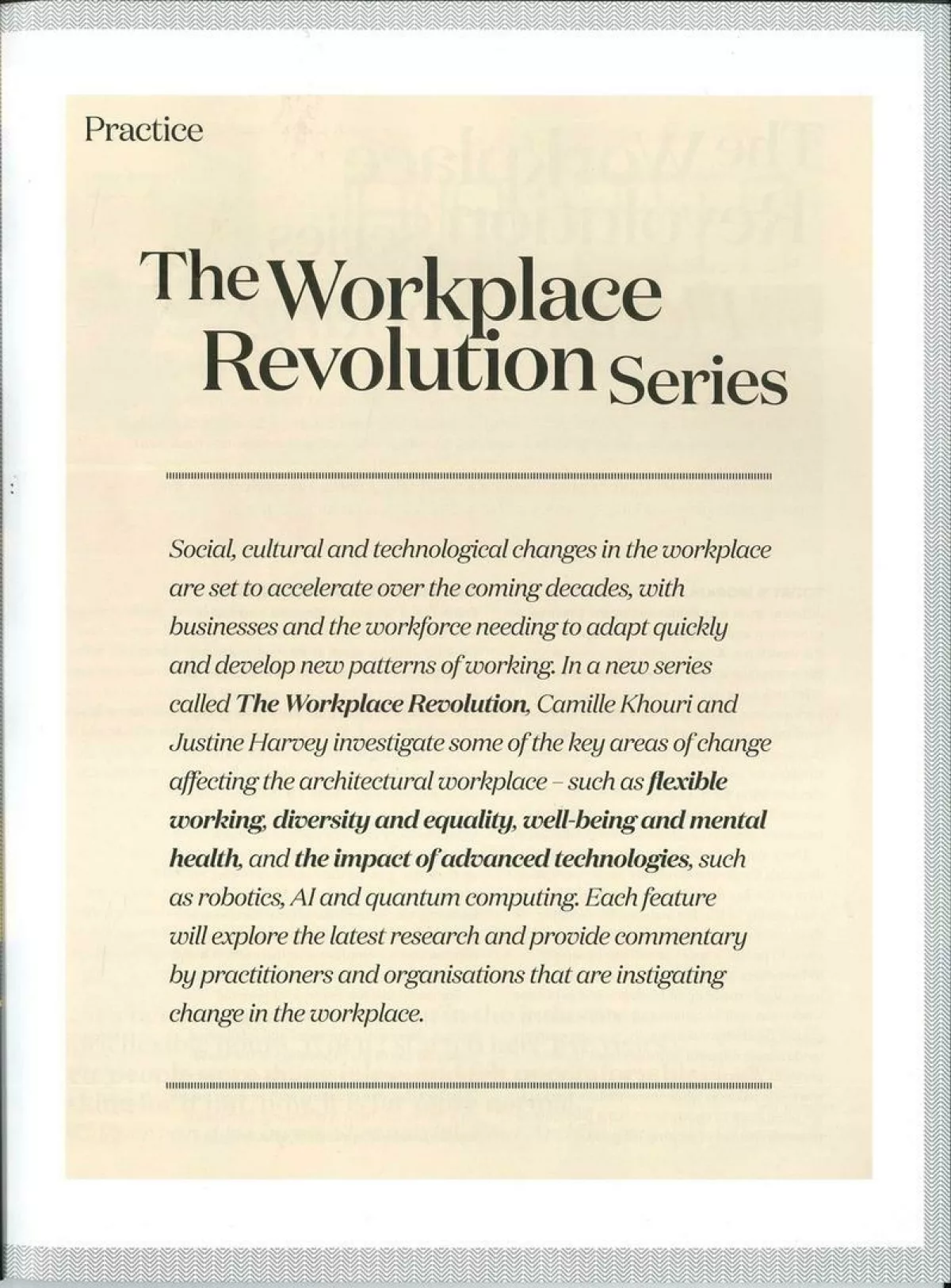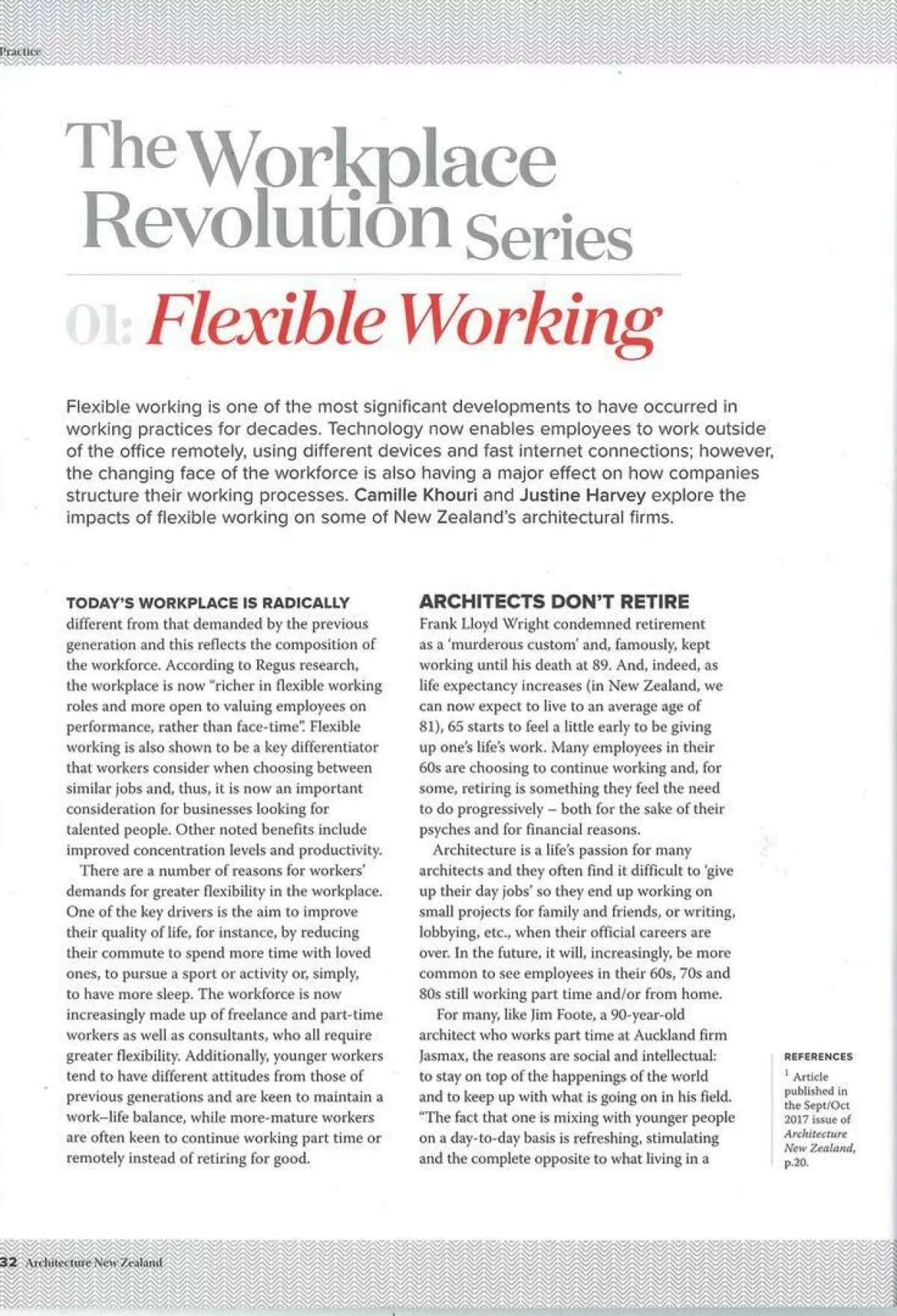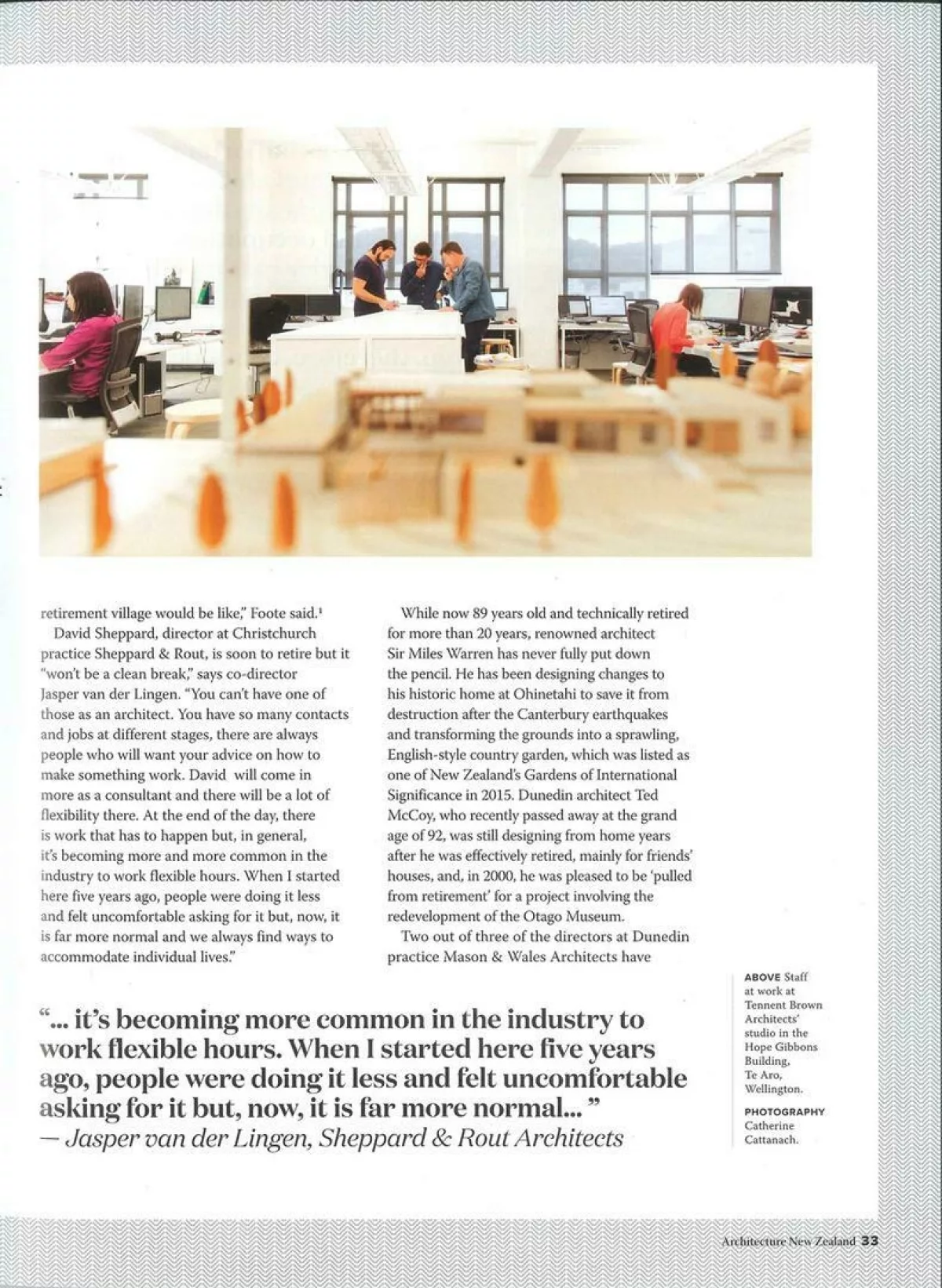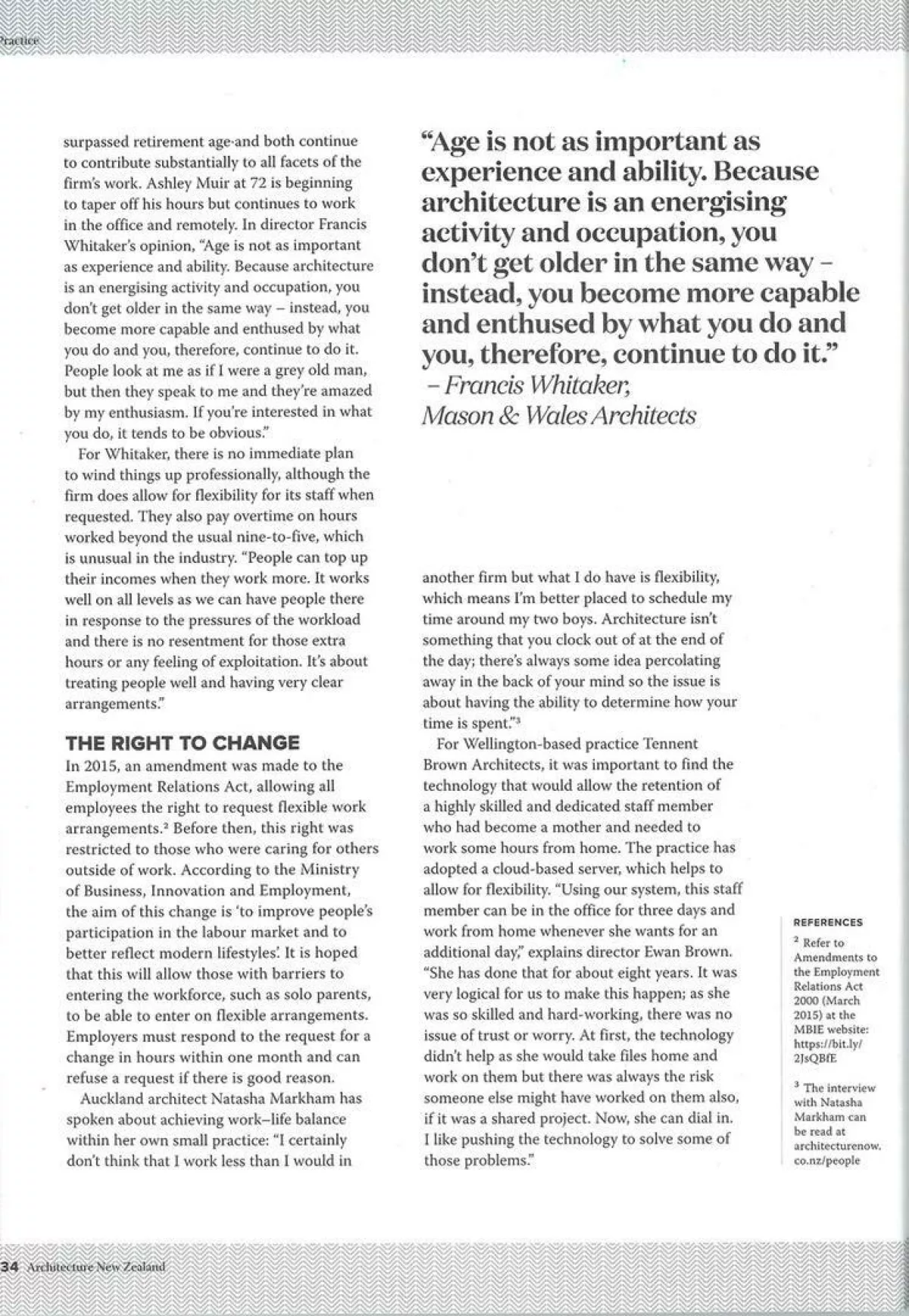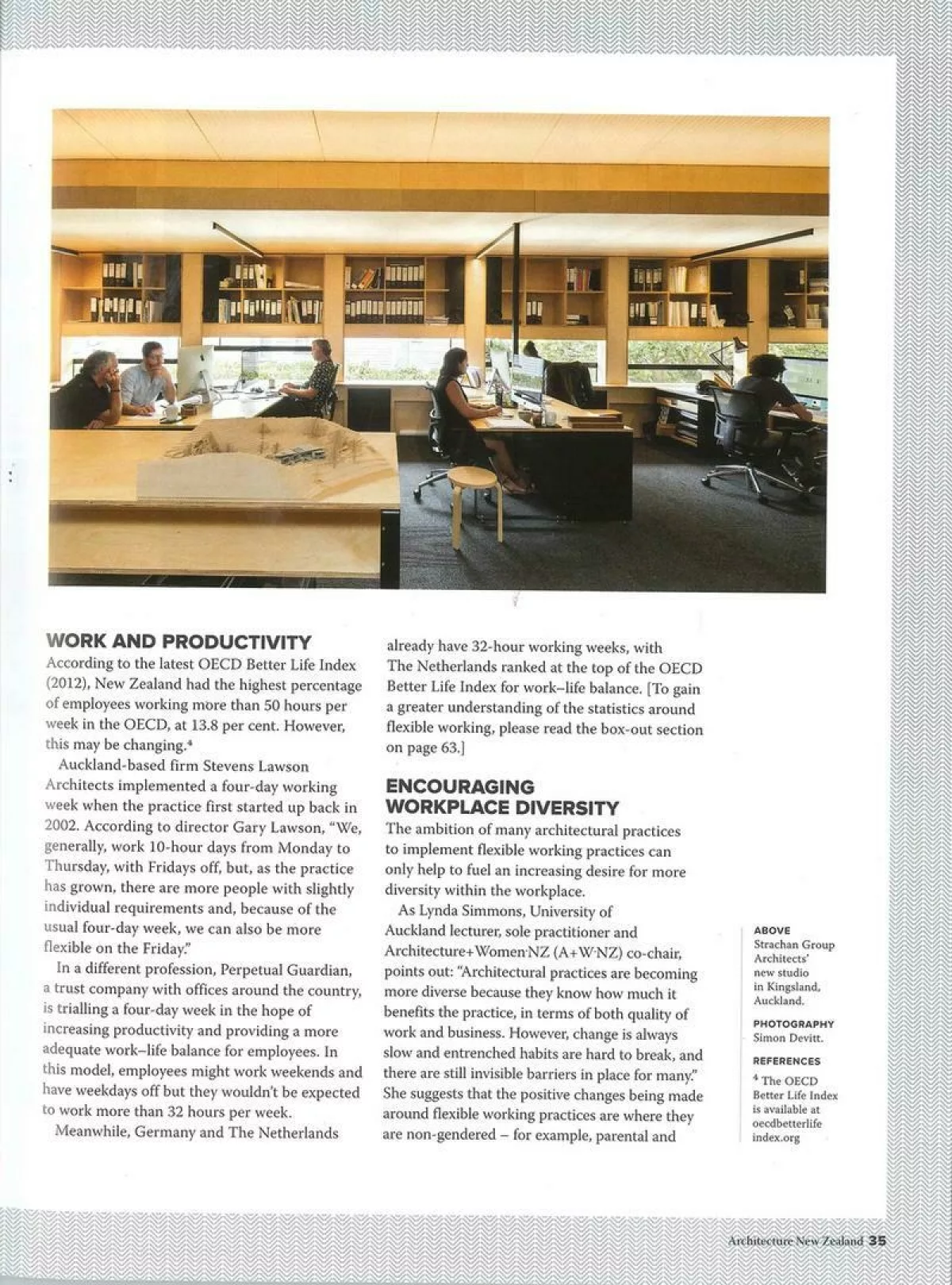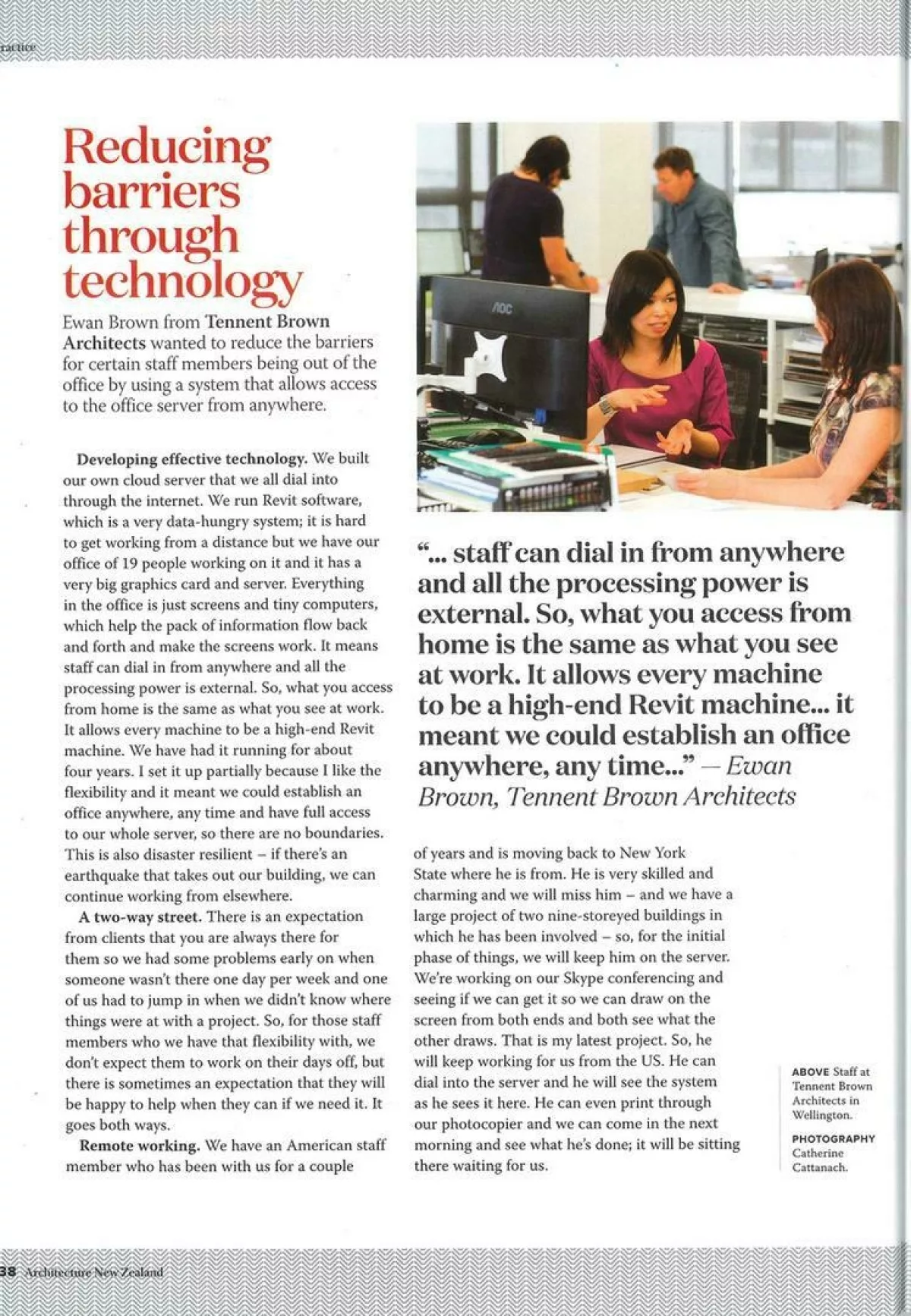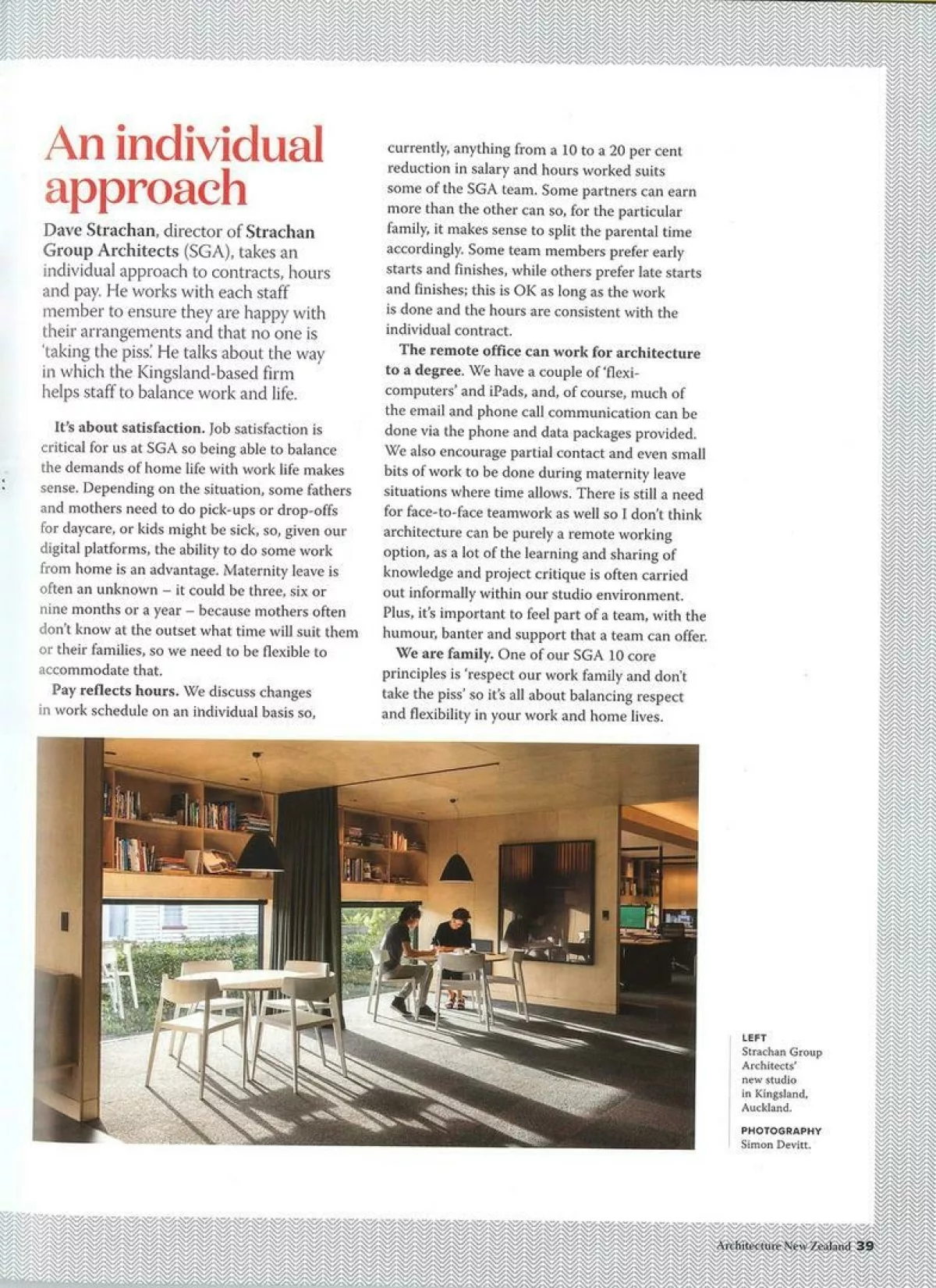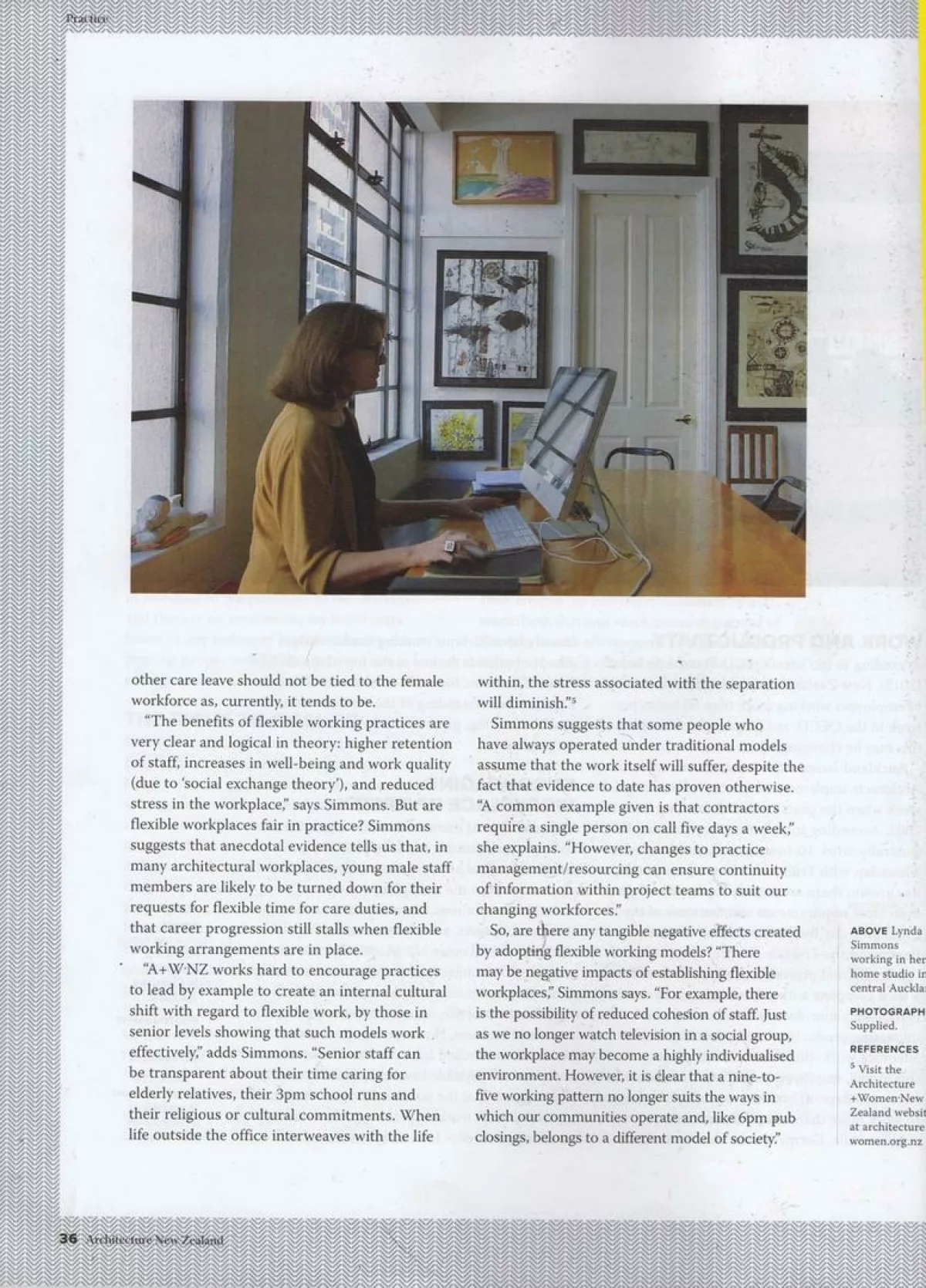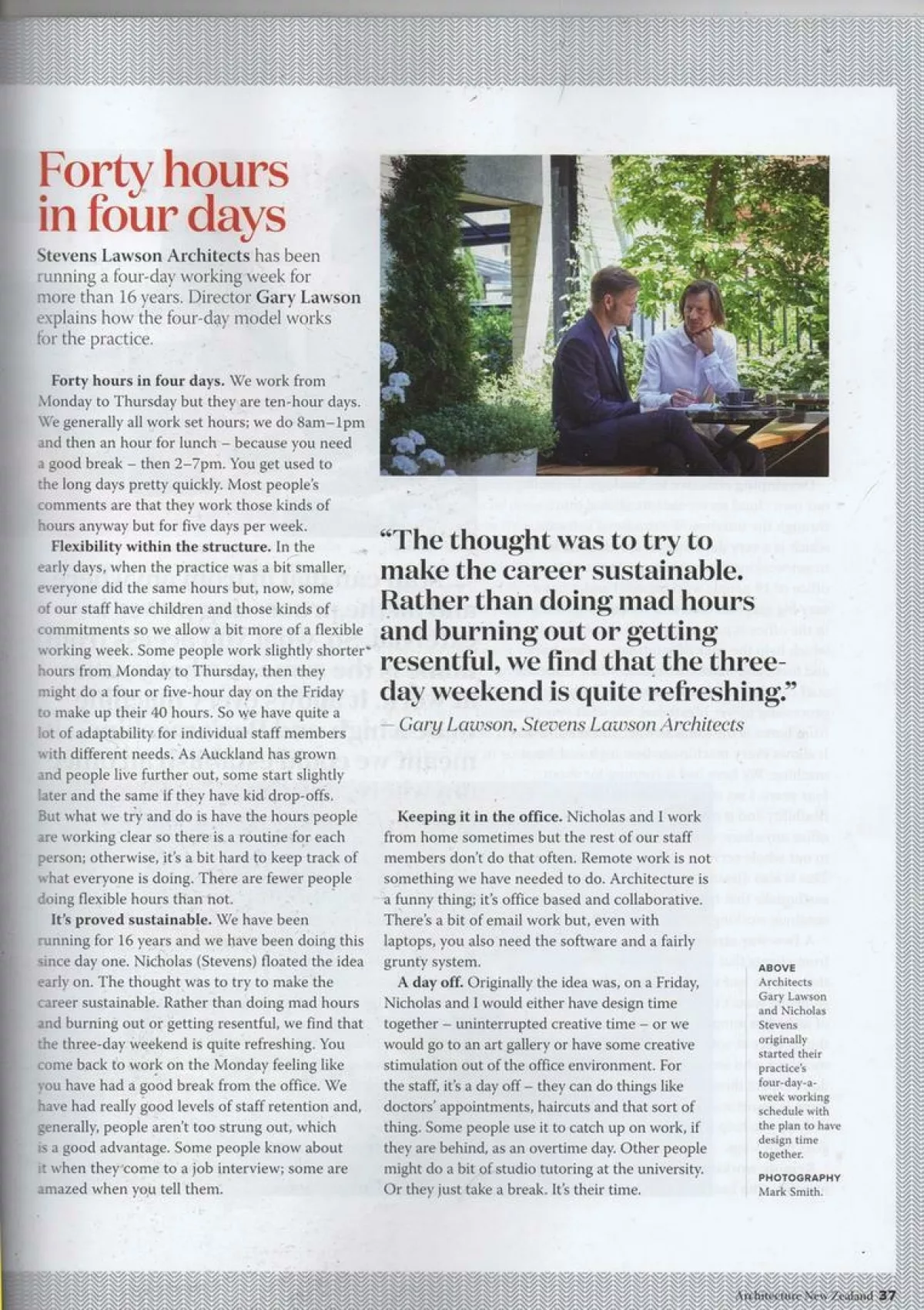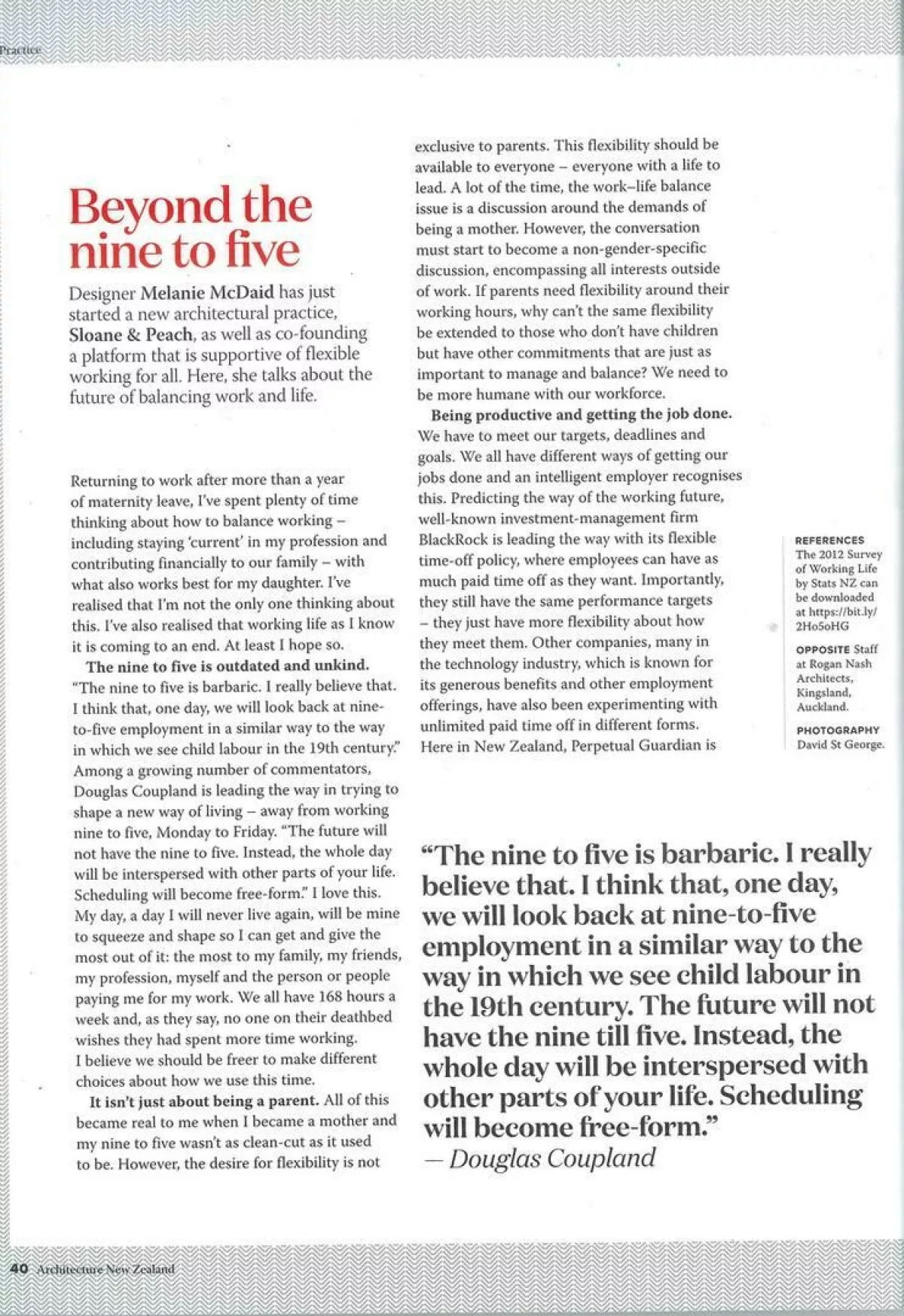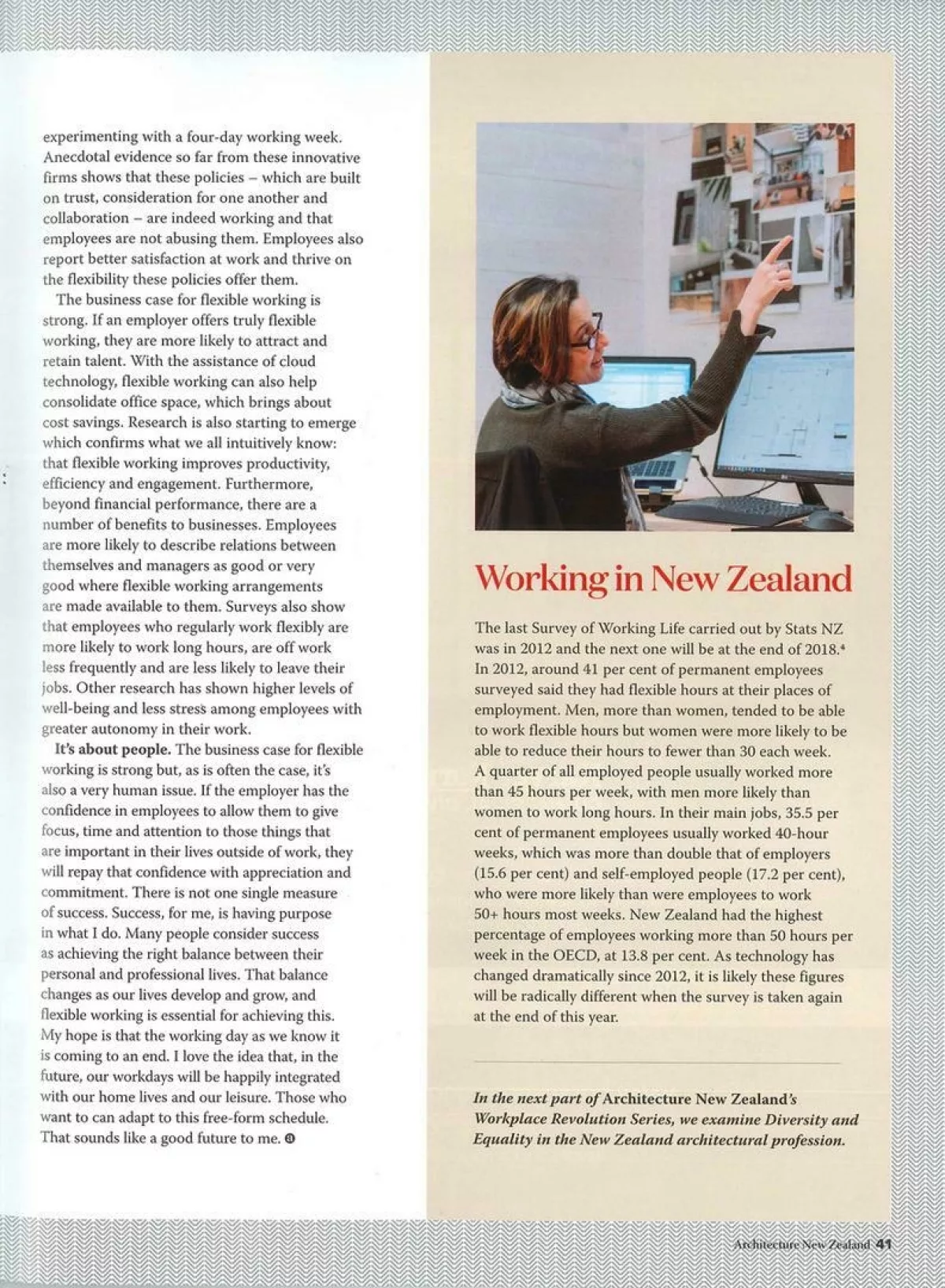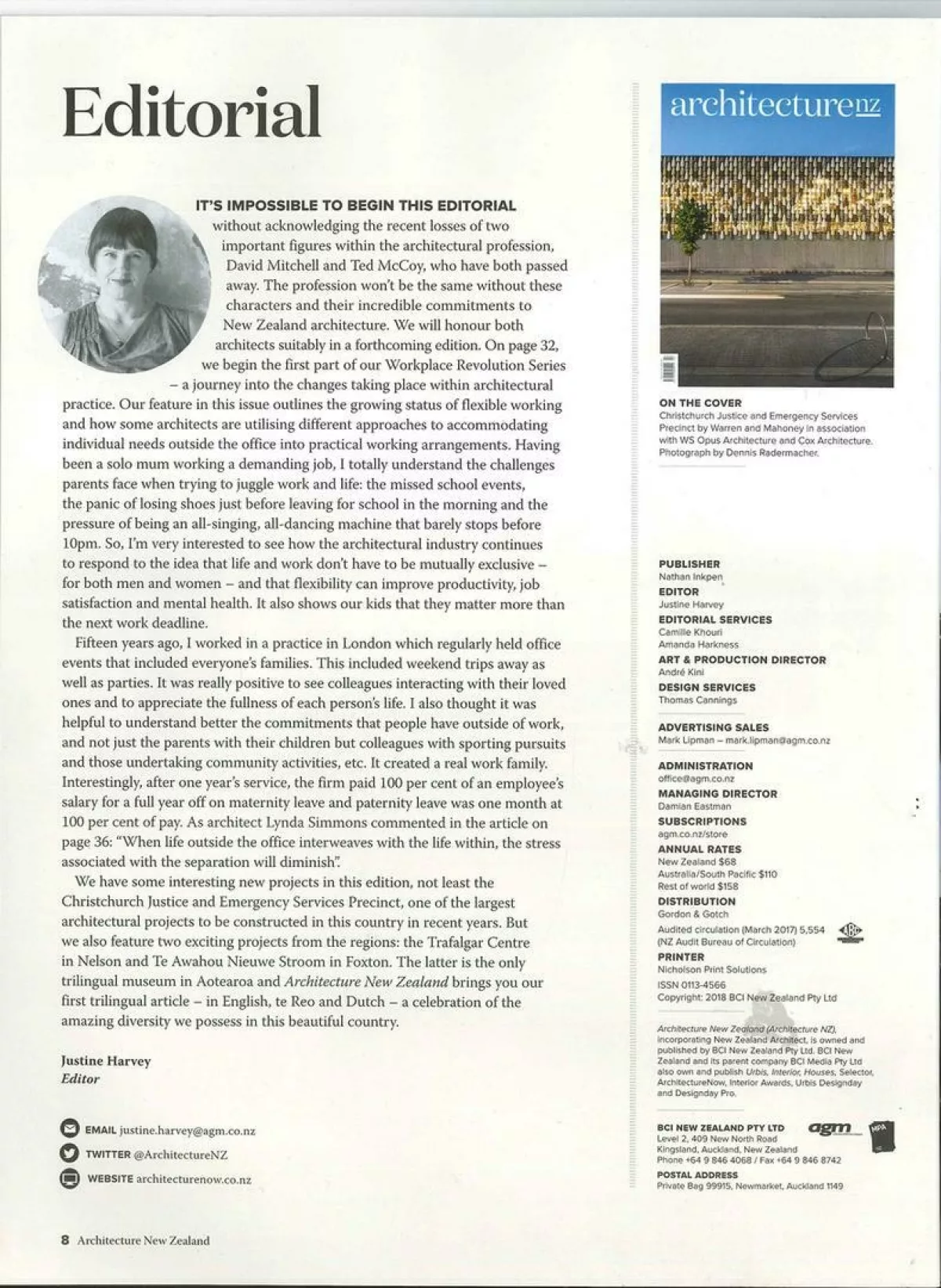01: Flexible Working
02 Jun 2018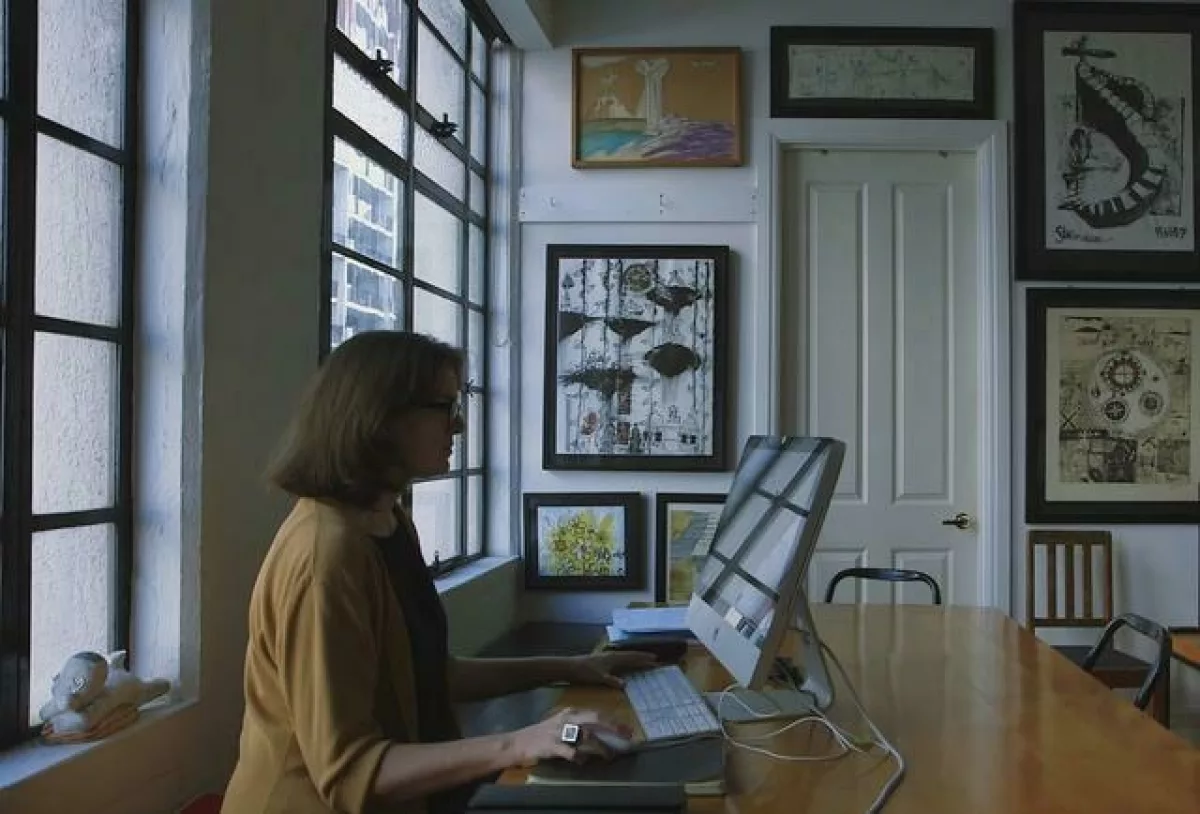
A+W NZ member Melanie McDaid and A+W NZ Co-Chair Lynda Simmons contributed to a recent architecturenz article on Flexible Working, and how architectural practices are changing to suit the current workforce. (May/June 2018) This is the first part of the architecturenz The Workplace Revolution Series, with more to follow. For the full article, click here.
Melanie's article is re-produced here, with the full scanned article from architecturenz below.
Melanie is also profiled in an ArchitectureNow article : Home and Away, by Ashley Cusick 25 May 2018

Beyond the Nine to Five
Designer and mum Melanie McDaid has just started a new practice, Sloane & Peach, as well as co-founding a platform that is supportive of flexible working for all. Here she talks about the future of balancing work and life.
Returning to work after more than a year of maternity leave, I’ve spent plenty of time thinking about how I’m going to balance working – including staying ‘current’ in my profession and contributing financially to our family – with what also works best for my daughter. I’ve realised that I’m not the only one thinking about this. I’ve also realised that working life as I know it is coming to an end. At least I hope so.
The nine to five is outdated and often unkind. “The nine to five is barbaric. I really believe that. I think that one day we will look back at nine to five employment in a similar way to how we see child labour in the 19th century.” Among a growing number of commentators, Douglas Coupland is leading the way in trying to shape a new way of living, away from working nine to five Monday to Friday. “The future will not have the nine to five. Instead, the whole day will be interspersed with other parts of your life. Scheduling will become freeform.” I love this. My day, a day I will never live again will be mine to squeeze and shape, so I can get and give the most out of it: the most to my family, my friends, my profession, myself, and the person or people paying me for my work. We all have 168 hours a week and, as they say, no one on their deathbed wishes they had spent more time working. I believe we should be freer to make different choices about how we use this time.
It isn’t just about being a parent. All of this became real to me when I became a mother and my nine to five wasn’t as clean-cut as it used to be. However, the desire for flexibility is not exclusive to parents. This flexibility should be available to everyone – everyone with a life to lead. A lot of the time the work-life balance issue is a discussion around the demands of being a mother. However, the conversation must start to become a non-gender-specific discussion encompassing all interests outside of work. If parents need flexibility around their working hours, why can’t the same flexibility be extended to those who don’t have children but have other commitments that are just as important to manage and balance? We need to be more humane with our workforce.
It’s still about being productive and getting the job done. We have to meet our targets, deadlines and goals. We all have different ways of getting our job done and an intelligent employer recognises this. Predicting the way of the working future, well known investment-management firm Blackrock is leading the way with their flexible time-off policy, where employees can have as much paid time off as they want. Importantly, they still have the same performance targets – they just have more flexibility about how they meet them. Other companies, many in the technology industry, which is known for its generous benefits and other employment offerings, have also been experimenting with unlimited paid time-off in different forms. Here in New Zealand, Perpetual Guardian is
experimenting with a four-day working week. Anecdotal evidence so far from these innovative firms shows that these policies – which are built on trust, consideration for one another, and collaboration – are indeed working and that employees are not abusing them. Employees also report better satisfaction at work and thrive on the flexibility these policies offer them.
The business case for flexible working is strong. If an employer offers truly flexible working they are more likely to attract and retain talent. With the assistance of cloud technology, flexible working can also help consolidate office space, which brings about cost-savings. Research is also starting to emerge which confirms what we all intuitively know, that flexible working improves productivity, efficiency and engagement. Furthermore, beyond financial performance there are a number of benefits to businesses. Employees are more likely to describe relations between themselves and managers as good or very good where flexible working arrangements are made available to them. Surveys also show that employees who regularly work flexibly are more likely to work long hours, are off work less frequently and are less likely to leave their job. Other research has shown higher wellbeing and less stress among employees with greater autonomy in their work.
It’s about people. The business case for flexible working is strong but, as is often the case, it’s also a very human issue. Have the confidence in employees to allow them to give focus, time and attention to those things that are important in their lives outside of work, and they will repay that confidence with appreciation and commitment. There is not one single measure of success. Success for me is having purpose in what I do. Many people consider success as achieving the right balance between their personal and professional lives. That balance changes as our lives develop and grow, and flexible working is essential for achieving this. My hope is that the working day as we know it is coming to an end. I love the idea that, in the future, our work days will be happily integrated with our home life and leisure. Those who want to can adapt to this free-form schedule. That sounds like a good future to me.
